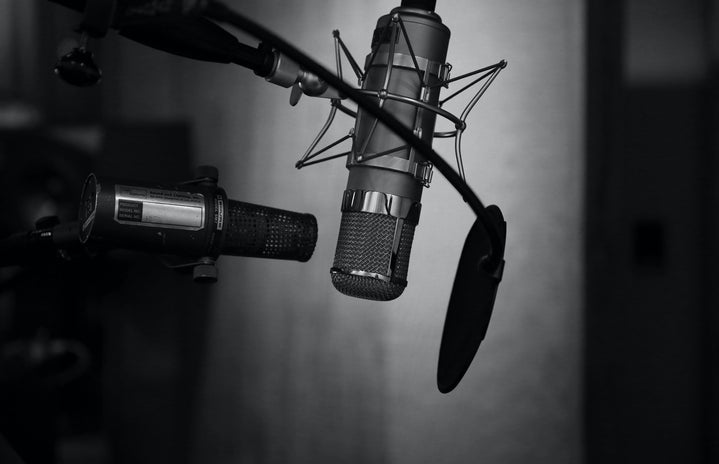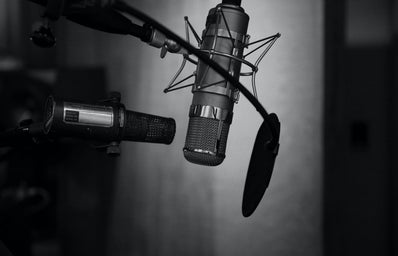In 2022, Brazil only had eyes — actually, ears — to one thing: the podcast A Mulher da Casa Abandonada. The podcast narrator Chico Felitti was intrigued by an old house in the middle of São Paulo’s most fancy neighborhood, Higienópolis. But far from the story he expected, the journalist found out there lived a woman with a dark past.
This viral podcast is only one of many journalistic podcasts that got our attention. Praia dos Ossos, Alexandre, Collor vs Collor, and Rádio Novelo Apresenta also ended up attracting many people to the world of long-form storytelling performed in audio.
The podcast market was estimated at 11,4 billion dollars in 2020, with the prediction of growing at a rate of 31% annually until 2028, according to Grand View Research. The Covid-19 pandemic contributed to it: people needed to quarantine, and staying home required discovering new forms of leisure. But its rise didn’t stop then: the Centro Regional de Estudos para o Desenvolvimento da Sociedade da Informação (Cetic), responsible for producing indicators and statistics on Internet access and use in Brazil, pointed out that podcasts’ consumption increased by over 132% after the pandemic. These numbers represented a great opportunity for journalism: a new form of telling stories.
Even though many people say podcasts are a renewal of radio, they actually have fewer boundaries regarding production scheduling, therefore having more time to explore and tell singular stories. Besides, the different types of productions cover a large part of the audience’s interest: interviews with celebrities, true crime stories, informational programs, and chit-chat between friends.
But journalistic podcasts have a peculiar characteristic: they inform about a subject in a deeper way, and, at the same time, they are a form of entertainment. A Mulher da Casa Abandonada, for example, was a phenomenon on social media and ended up on Twitter’s Trending Topics, with listeners declaring themselves “addicted” to it and longing for next week’s episode — much like a TV show.
In the meantime, the podcast brought light to a subject jeopardized in Brazil: slave-like labor. Chico Felitti found out the old house’s owner was an FBI fugitive who had kept a woman in forced confinement and made her work without a salary or worker’s rights for 20 years. After the investigation’s success among listeners, the reports regarding slave-like labor increased by 123% in the country, according to Ministério Público do Trabalho (Brazil’s Cabinet of Labor).
Another remarkable characteristic of journalistic podcasts is the way they explore long-form storytelling and invest in a narrative script. It has great relevance when it comes to keeping the audience engaged, as it creates an intriguing and exciting storyline. Sound resources are also important when it comes to highlighting a podcast in the middle of a wide offer — 219 thousand audio productions were released in 2022, as reported by Listen Notes.
Finally, both journalists and the audience have benefited a lot from journalistic podcasts: professionals found a new branch to work in a time in which career has been devalued by the increase of fake news, and listeners consume verified quality information while they get entertained by the evolving narrative of peculiar stories. It’s a win-win!
The article above was edited by Beatriz Oliveira.
Liked this type of content? Check Her Campus Cásper Líbero home page for more!

